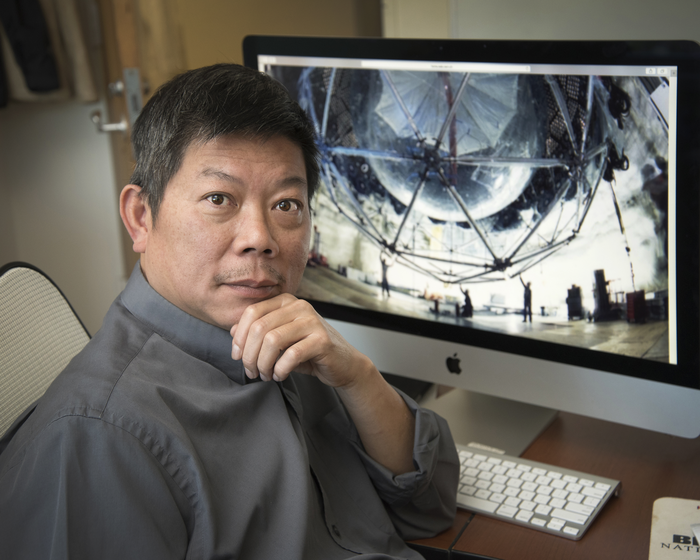UPTON, NY—Minfang Yeh, a senior scientist at the U.S. Department of Energy’s Brookhaven National Laboratory, has won the American Physical Society’s 2021 Division of Particles and Fields (DPF) Instrumentation Award.

Credit: Brookhaven National Laboratory
UPTON, NY—Minfang Yeh, a senior scientist at the U.S. Department of Energy’s Brookhaven National Laboratory, has won the American Physical Society’s 2021 Division of Particles and Fields (DPF) Instrumentation Award.
The award honors Yeh’s pioneering work in the development and production of high-performance water-based liquid scintillators for particle physics experiments, including metal loaded scintillators for rare process experiments. This development has made possible a new generation of large detectors for studying neutrinos—elusive subatomic particles that flooded the universe just moments after the Big Bang that may offer clues to a range of fundamental physics questions.
“I’m quite happy that the importance of the liquid scintillator detector is being recognized,”
Yeh said. “It has been utilized in many ways, particularly for neutrino experiments.”
Neutrinos carry no electrical charge, weigh very little, and interact very rarely with other matter. These tricky-to-detect particles are abundant and produced by many sources such as the sun, accelerators, and nuclear reactors.
Liquid scintillators allow scientists to distinguish signals produced by neutrinos from background particles entering detectors. Water-based liquid scintillators developed by Yeh and the neutrino and nuclear chemistry group he leads within Brookhaven’s Chemistry Division offer a cost-effective detection medium for large-scale physics experiments.
“Besides studying neutrinos for basic science research, we can also study neutrinos for nuclear reactor safeguards to monitor nuclear radiation from a distance,” Yeh said. “The water-based liquid scintillator we developed is for that purpose. This is just one implication of neutrino research.”
Yeh’s group has designed detectors for probes into neutrino oscillation—the particles’ ability to “shapeshift” between three forms (electron, muon, and tau)—as well as dark matter searches, nuclear nonproliferation activities, double-beta decay searches, and medical imaging studies.
Yeh is also leading a project to build a 30-ton water-based liquid scintillator design demonstrator to investigate the feasibility of using the medium at kiloton scale for future nonproliferation activities and particle physics experiments. The team, which includes scientists and engineers across chemistry, physics, and instrumentation groups, expects testing to begin in 2023.
His group is also part of several international collaborations such as the Precision Oscillation and Spectrum Experiment (PROSPECT)—an experiment exploring antineutrinos emitted from nuclear reactors. The team developed a unique, lithium-doped scintillator that emits light in response to interactions with subatomic particles.
Yeh joined Brookhaven Lab’s Chemistry Division in 2000. He earned a bachelor’s degree in chemistry from Tunghai University in Taiwan and a master’s in chemistry from Eastern Michigan University. He received his Ph.D. in nuclear physics from the chemistry department of the University of Kentucky.
Brookhaven National Laboratory is supported by the Office of Science of the U.S. Department of Energy. The Office of Science is the single largest supporter of basic research in the physical sciences in the United States and is working to address some of the most pressing challenges of our time. For more information, please visit science.energy.gov.
Follow @BrookhavenLab on Twitter or find us on Facebook.




